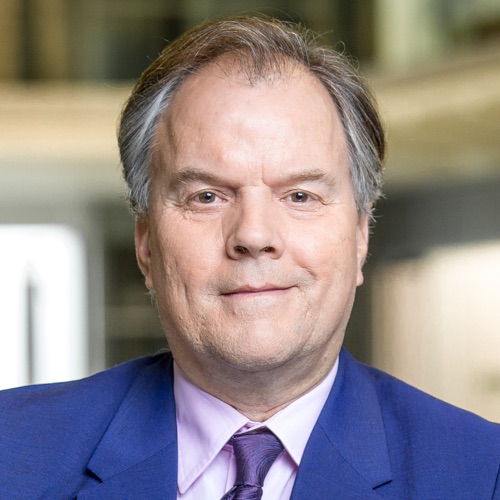The day Robin Williams saved my bacon
It could have turned into a broadcasting catastrophe if I hadn’t been saved. I was on stage at the TED conference in Carmel, California introducing my panellists for a discussion on new media versus old media.
Next to me were Sergei Brin, the Russian born co-founder of Google, Carl Bernstein, the award winning journalist who helped to break the Watergate story, and Queen Noor of Jordan, the widow of the late King Hussein and a well-known philanthropist.
In the audience, each of whom has paid $6,000 to attend the conference, I could make out Mark Zuckerberg of Facebook fame, Larry Page, the other Google founder, Forest Whitaker, the actor, and a phalanx of other Hollywood and Silicon Valley stars, all whom were wearing black T-shirts and Crocs, the then hallmark of West Coast billionaires: inverted sartorial snobbery.
The more they dressed down at TED, the richer they were. As I prepared to start our talk and surveyed the audience, the overarching feeling I got, somewhere in the pit of my stomach, could best be described as “Don’t f*** this up, Frei. They will never forgive you.” And then I f***** it up. Or rather, technology did.
Just as I was introducing Sergei Brin, a man whose programming genius exists in inverse proportion to his sense of humour, my producer whispered into my ear: “The cameras have failed, for some reason. We have to have a 20- minute delay at least. Apologise and keep the crowd happy.”
I swallowed hard. I could feel the beads of perspiration lining up in mockery on my forehead. I could hear myself trying to make a joke out of technology failing at a tech conference in front of an assembly of tech geniuses and I could see an unsmiling Mark Zuckerberg calculate how many millions of dollars in time and opportunity wasted the delay would cost him.
I could hear myself trying a few jokes. I watched as the audience responded to my attempts at ruffled British self- mockery with silent, sullen mockery. We were in a hermetically sealed irony-free environment and, astonishingly, no-one got up to leave.
And then I heard the voice. An almost incomprehensible Glaswegian accent broke like thunder from somewhere in the upper dark recesses of the theatre. Spiced with expletives, the Scottish heckler was ranting about the delay, the sheer incompetence of it all, the unbelievable waste of time and money.
Mark Zuckerberg looked up in obvious agreement. The rest of the audience were caught between approval and apprehension since this sort of fruity granular language was extremely rare at a TED conference. I was fully expecting a brawl and wondered why security hadn’t already pounced on the unruly Scotsman. And then I noticed that the mood around the heckler broke into hilarity.
Carl Bernstein, whose eyesight was clearly better than mine, said: “It’s Robin.” He then shouted out to this strange Robin from Glasgow. “Come on down, Robin. Join us.” Had he gone mad? It was all falling apart. I had lost control of the technology, the audience, and now the panel.
Seconds later Robin Williams bounded on to the stage in his black T-shirt and launched into an achingly funny diatribe against all things British – from the BBC, my then employer who were hosting the event, to the royal family and their dental hygiene, to me.
I can’t remember any individual lines. But I can remember feeling faint with comic relief and thinking that this man was a comical genius whose ability to make the audience laugh was like performance alchemy delivered with an almost hysterical energy.
Robin Wiliams was my deus ex machina. He saved my bacon. Someone later told me that Williams was a manic depressive who had battled with alcohol and drug abuse throughout his life. I had no idea. Performing made him forget his demons for a while.
And on that day on that stage his 20-minute stand-up act, snatched from nowhere other than a combination of nervous energy and imagination, made me forget my woes and the audience theirs. I thanked him afterwards. He winked and disappeared.
Follow @mattfrei on Twittter
